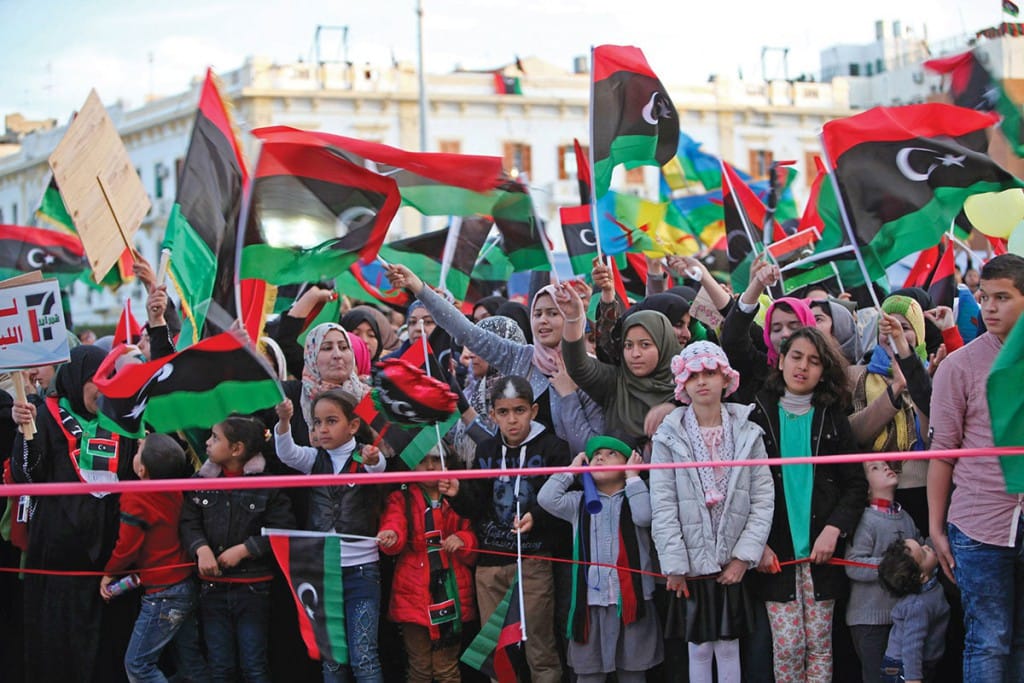Libya’s Rival Factions Agree on New Central Bank Leadership to Resolve Oil Revenue Standoff
Libya's rival legislative bodies agree to appoint a new central bank governor, aiming to resolve a dispute over control of vital oil revenues.

In a bid to defuse a prolonged dispute over control of the country's oil revenue, Libya's two legislative bodies, the House of Representatives and the High State Council, have agreed to appoint a new central bank governor. The move, seen as a crucial step toward stabilizing Libya's fragile economy, was announced on Tuesday following two days of talks mediated by the United Nations Support Mission in Libya (UNSMIL).
The agreement, reached in a joint statement signed in Tripoli, commits the two sides to appointing a central bank governor and a new board of directors within 30 days. This decision could potentially end a standoff that has led to a significant decline in oil production, one of Libya's most vital sources of revenue.
A Fragile Peace and Ongoing Divisions
Libya has been plagued by instability since the 2011 NATO-backed uprising that toppled long-time dictator Moammar Gadhafi, leading to a bloody civil war and years of political turmoil. The country was effectively split in 2014 between factions in the east and west, with a ceasefire in 2020 providing only a temporary reprieve. Efforts to reunify the country have been ongoing, but the divisions remain deeply entrenched.
The House of Representatives, based in Benghazi in the east, and the High State Council, located in Tripoli in the west, were both recognized internationally under a 2015 political agreement. However, they have frequently supported opposing sides in Libya's protracted conflict. The central bank has been a particular flashpoint in these disputes, as it is the sole legal repository for the nation's oil revenue and pays state salaries across the country.
Oil Production at Stake
The current crisis began when the head of the Presidency Council in Tripoli moved to dismiss Sadiq al-Kabir, the long-standing governor of the Central Bank of Libya (CBL), and replace him with a rival board. In response, factions in the east declared an immediate halt to all oil production, demanding that Kabir's dismissal be reversed. This standoff threatened to unravel four years of relative stability and led to a sharp decline in oil output.
Since then, some oil production has resumed, and global oil prices dropped by nearly 5% on Tuesday — the lowest in almost nine months — as traders anticipated a resolution to the conflict. However, the central bank remains largely paralyzed, unable to conduct transactions for more than a week due to the ongoing battle for control.
UNSMIL's Role in Mediation
The agreement to appoint a new central bank chief followed consultations hosted by UNSMIL in Tripoli, where representatives from both legislative bodies discussed the crisis over two days. The UNSMIL statement highlighted that the two factions had reached "important understandings" regarding the mechanism and timelines for appointing the CBL governor and board of directors. The talks have been extended for another five days, concluding on September 9, to finalize the details of the agreement.
Underlying Political Tensions
The conflict over the central bank's leadership is only the latest manifestation of Libya's fractured political landscape, marked by rival governing institutions with competing claims to legitimacy. The central bank, headquartered in Tripoli, operates independently of the two governments, complicating efforts to resolve the crisis.
Adding to the turmoil, the bank's head of IT, Musab Msallem, was kidnapped from his home on August 18 by an unidentified group, leading to a week of uncertainty. Although Msallem was later released, US Special Envoy to Libya Richard Norland described the abduction as an attempt to force Kabir to resign.
Kabir, who has previously been dismissed by the Presidential Council — a body linked to the internationally recognized government of Prime Minister Abdul Hamid Dbeibah — has argued that the council has no authority to remove him due to the central bank's independence. In the wake of the dispute, Kabir and other senior officials fled to Istanbul on August 30, citing threats from armed militias.
Impact on the Libyan People
The paralysis at the central bank has had severe consequences for ordinary Libyans, many of whom are on the state payroll and rely on the bank's ability to conduct transactions. The ongoing crisis threatens to further erode public confidence in the country’s fragile institutions and could have far-reaching implications for Libya's future stability.
With a 30-day deadline set for the appointment of new leadership at the central bank, Libyans and international observers alike are watching closely to see if this latest agreement can hold and bring some measure of stability to a nation that has known little peace for over a decade.





